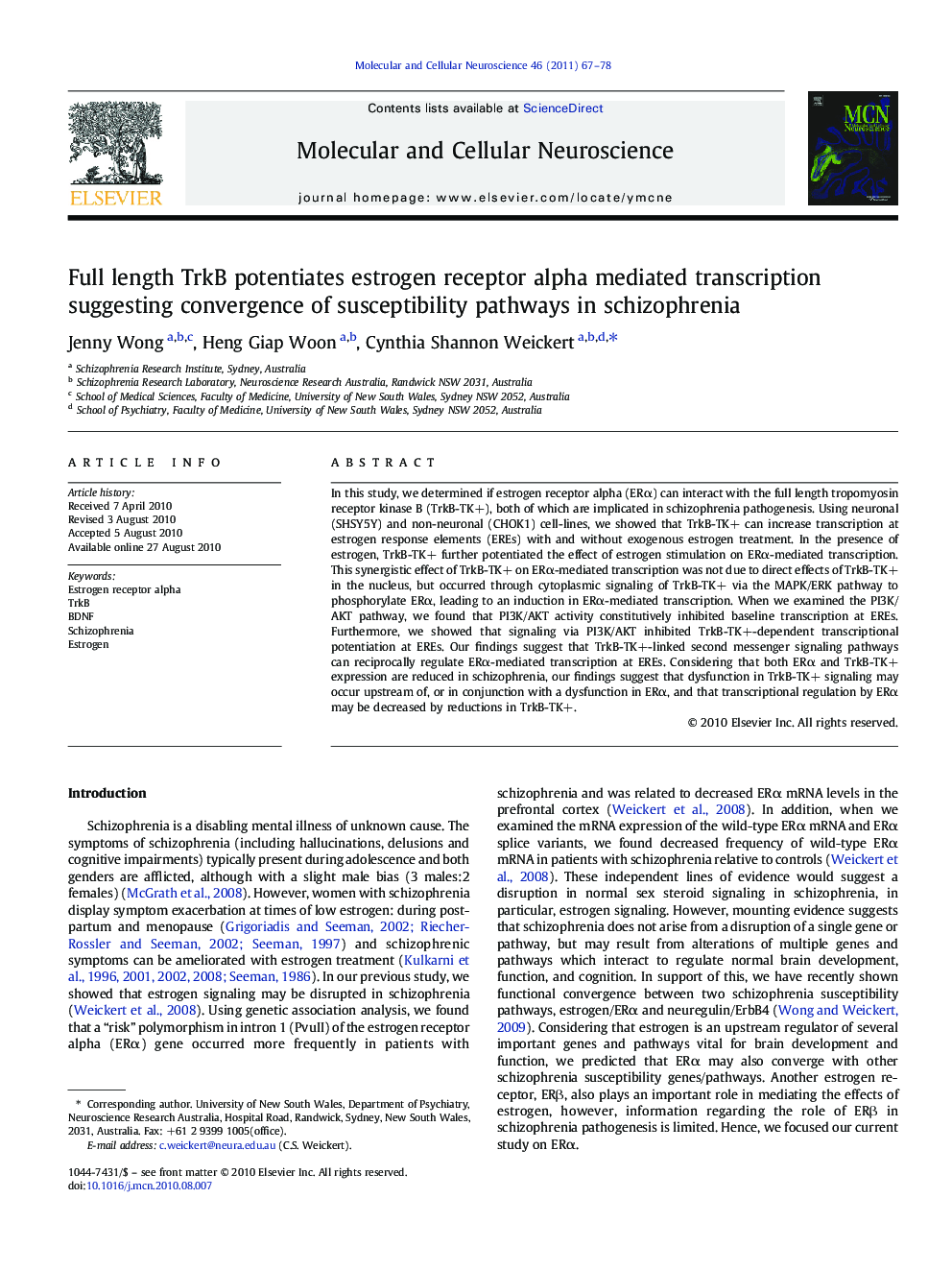| Article ID | Journal | Published Year | Pages | File Type |
|---|---|---|---|---|
| 10956625 | Molecular and Cellular Neuroscience | 2011 | 12 Pages |
Abstract
In this study, we determined if estrogen receptor alpha (ERα) can interact with the full length tropomyosin receptor kinase B (TrkB-TK+), both of which are implicated in schizophrenia pathogenesis. Using neuronal (SHSY5Y) and non-neuronal (CHOK1) cell-lines, we showed that TrkB-TK+ can increase transcription at estrogen response elements (EREs) with and without exogenous estrogen treatment. In the presence of estrogen, TrkB-TK+ further potentiated the effect of estrogen stimulation on ERα-mediated transcription. This synergistic effect of TrkB-TK+ on ERα-mediated transcription was not due to direct effects of TrkB-TK+ in the nucleus, but occurred through cytoplasmic signaling of TrkB-TK+ via the MAPK/ERK pathway to phosphorylate ERα, leading to an induction in ERα-mediated transcription. When we examined the PI3K/AKT pathway, we found that PI3K/AKT activity constitutively inhibited baseline transcription at EREs. Furthermore, we showed that signaling via PI3K/AKT inhibited TrkB-TK+-dependent transcriptional potentiation at EREs. Our findings suggest that TrkB-TK+-linked second messenger signaling pathways can reciprocally regulate ERα-mediated transcription at EREs. Considering that both ERα and TrkB-TK+ expression are reduced in schizophrenia, our findings suggest that dysfunction in TrkB-TK+ signaling may occur upstream of, or in conjunction with a dysfunction in ERα, and that transcriptional regulation by ERα may be decreased by reductions in TrkB-TK+.
Related Topics
Life Sciences
Biochemistry, Genetics and Molecular Biology
Cell Biology
Authors
Jenny Wong, Heng Giap Woon, Cynthia Shannon Weickert,
